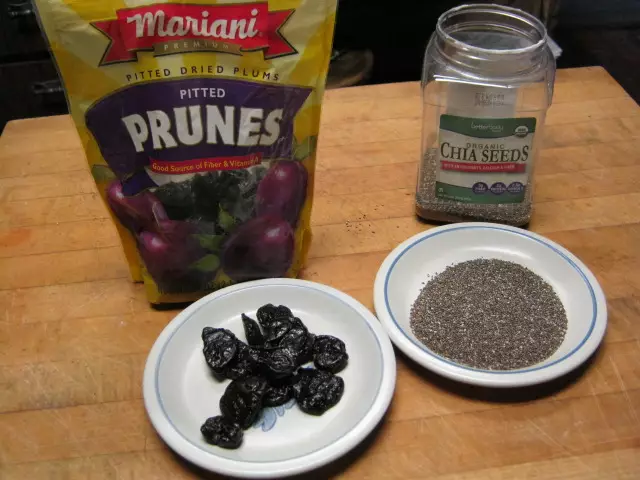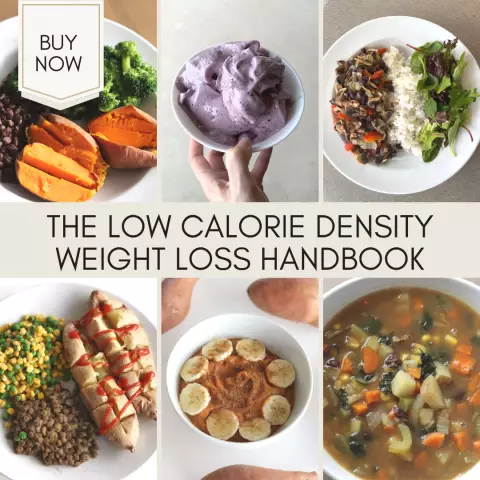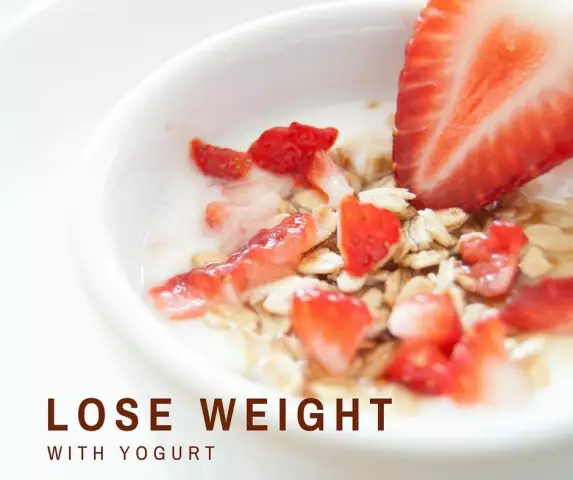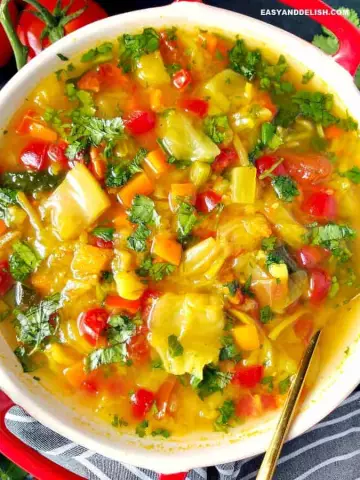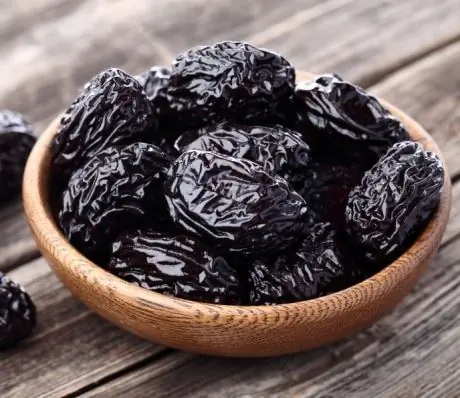- Author Rachel Wainwright wainwright@abchealthonline.com.
- Public 2023-12-15 07:39.
- Last modified 2025-11-02 20:14.
Calorie content of prunes
Prunes are dried fruits prepared by drying almost any kind of plum. The best variety for making prunes is Italian Hungarian.
For cooking prunes at home for weight loss, according to reviews, it is necessary to select the best and ripe fruits during the ripening season of the plum, as well as purchase potassium sorbate, which will serve as a preservative.

After the fruits have been selected, they must be thoroughly washed and laid out on a metal tray. It is best to cover the plums with gauze on top, as midges will land on them during the drying process. Then the tray with plums must be placed in a place where they will be exposed to direct sunlight for 3-4 weeks. After the plums are dry, you need to remove the seeds from them, put the semi-finished dried fruits on a plate and sprinkle with a small amount of potassium sorbate on top. After two hours, freshly prepared prunes, the calorie content of which is quite high, so that you should not consume them in large quantities, will be ready for use.
When cooked, despite how many calories there are in prunes, it is often an ingredient for preparing meat dishes and various desserts.
Useful properties of prunes
Prunes, which have a caloric value of 241 kcal per 100 g, are an excellent source of phenols, which help to improve oxygen supply to cells, as well as vitamin K, which is vital for strong bones and good blood clotting.
The sweet taste and high calorie content of prunes make it seem as if these dried fruits are not suitable for dietary nutrition, but the soluble fiber they contain can slow down the absorption of glucose and stabilize blood sugar levels, so that if consumed in moderation, there will be no harm to the figure. But the benefits for the whole body will be obvious, in addition, the use of prunes for constipation as a laxative is widely known, which also affects the loss of excess weight.
In addition to their high calorie content, prunes also contain many antioxidants that help protect cells from damage caused by free radicals - unstable molecules that result from improper cellular metabolism, smoking, environmental pollution, and UV exposure. Research shows that excess free radicals can contribute to premature aging, skin wrinkling, cardiovascular disease, and the development of malignant tumors.
Prunes, which are very high in calories, are also a good source of dietary fiber. 100 g of prunes contains approximately 6.1 g of dietary fiber, which is that part of any plant food that the body's enzymes cannot digest and which are not absorbed into the bloodstream. As a result, these fibers remain in the colon, where they absorb water and soften the stool, thereby expressing an active effect on the body of prunes from constipation. In addition, prunes contain sorbitol (14.7 g in 100 g), which is a mild colon stimulant that improves colon patency and reduces the risk of constipation, colorectal cancer and hemorrhoids.
The high antioxidant content of prunes is due to the high levels of hydroxycinnamic acids (phenolic compounds) they contain. The hydroxycinnamic acids found in prunes include neochlorogenic and chlorogenic acids, which are very effective in scavenging free radicals from the body. In addition to being high in hydroxycinnamic acids and calories, prunes are also rich in anthocyanins and flavonoids.
How many calories are in prunes: nutritional and energy value
The calorie content of prunes is quite high, but this does not prevent the widespread use of this type of dried fruit in cooking and nutrition.
The nutritional value and caloric content of prunes, per 100 g of these dried fruits, is:
- Proteins - 2.18 g;
- Fat - 0.38 g;
- Carbohydrates - 63.88 g;
- Disaccharides - 38.13;
- Retinol (vitamin A) - 39 mcg;
- Beta carotene - 394 mcg;
- Thiamin (vitamin B1) - 0.051 mg;
- Riboflavin (vitamin B2) - 0.186 mg;
- The calorie content of prunes is 1006 kJ (241 kcal);
- Niacin (Vitamin B3) 1,882 mg
- Pantothenic Acid (Vitamin B5) - 0.422 mg;
- Pyridoxine (vitamin B6) - 0.205 mg;
- Folacin (vitamin B9) - 4 mcg;
- Ascorbic acid (vitamin C) - 0.6 mg;
- Tocopherol (vitamin E) - 0.43 mg;
- Vitamin K - 59.5 mcg;
- Calcium - 43 mg;
- Iron - 0.93 mg;
- Magnesium - 41 mg;
- Phosphorus - 69 mg;
- Potassium - 732 mg;
- Sodium - 2 mg;
- Zinc - 0.44 mg;
- Fluoride - 4 mcg.
Calorie content of prunes: an easy diet for weight loss
As you know, the content of calories in prunes is high enough to consider this product anti-dietary, but this is far from the case. These dried fruits have a number of unusual properties, which, when used for weight loss, allow prunes to lose 3-4 kg in just 4-5 days of diet. Such results are possible due to the high content of pectins in prunes, which perfectly cleanse the intestines from toxins. Also, 100 g of prunes contains 732 mg of potassium, which helps to restore the water-salt balance of the body, brings pressure to a normal state, is necessary for the work of the heart muscle, and also produces a diuretic effect on the body, which also contributes to weight loss, as does the action of prunes from constipation …

When choosing prunes for weight loss, according to reviews, it is very important that dried fruits are bought of good quality: ideally, the fruit should be uniformly black, not have a glossy sheen - this will speak of processing it with fats, and taste sweet with a slight sourness.
An approximate diet menu for five days is as follows:
- Day 1: Breakfast - 1 hard-boiled egg, half a grapefruit, a cup of black coffee without sugar and 2 pcs. prunes, the calorie content of which will be approximately 37 kcal. Lunch - vegetable borscht without potatoes, 50 g of black whole grain bread, two walnuts, 8 pcs. prunes and a cup of green tea without sugar. Dinner - one hard-boiled egg, 250 g of any baked fish, 1 orange and a cup of black tea;
- Day 2: breakfast - 50 g of hard cheese, a cup of black coffee without sugar and 2 pcs. prunes. Lunch - a plate of cabbage soup, 50 g of black whole grain bread, 100 g of boiled lean beef, 2-3 pcs. almonds and green tea. Dinner - salad of fresh vegetables and herbs, 4 pcs. prunes, the calorie content of which will be almost 65 kcal, a cup of black tea;
- Day 3: Breakfast - 50 g of black whole grain bread with a slice of hard cheese and chicken ham, 3 pcs. prunes and coffee without sugar. Lunch - vegetable soup, 50 g of black whole grain bread, one tomato, two small boiled potatoes, 2 pcs. prunes and green tea without sugar. Dinner - 50 g of black whole grain bread, a glass of 0% kefir or yogurt, 5 pcs. prunes, the calorie content of which will be almost 80 kcal, and a cup of black tea.
The menus of the fourth and fifth days are similar to those of the second and third days. It is important to remember that when following a diet, you must drink at least 1.5 liters of water per day.
Found a mistake in the text? Select it and press Ctrl + Enter.

